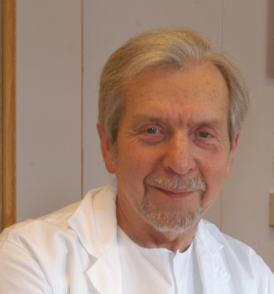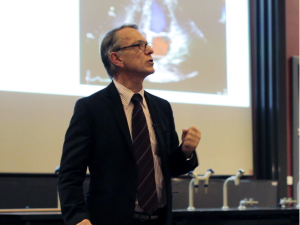The association between the risk of heart disease and dietary intakes of selenium remains unclear. Here we report the results of some of the recent observational studies on this topic.
Risk of Cardiovascular Disease

The association between the risk of heart disease and dietary intakes of selenium remains unclear. Here we report the results of some of the recent observational studies on this topic.

Heart disease. The evidence from clinical studies is increasing. Selenium deficiency is associated with an increased risk of heart trouble [Bomer 2020]. Selenium supplementation of elderly individuals who have low selenium status is associated with improved survival, improved heart function, and improved quality of life [Alehagen 2013].

Especially in northern Europe, clinical studies show the relationship between the need for selenium and the risk of heart disease. This makes sense because the dietary selenium intake in northern Europe is considerably lower than the dietary selenium intake in much of the United States. Consequently, the mean plasma selenium concentrations in Europe tend to be well below 80–90 mcg/L. In the USA, on the other hand, the mean plasma selenium concentrations are generally above 120 mcg/L [Alehagen 2022].
Reduced risk of heart disease and reduced risk of some cancers. Increasing the daily intake of selenium among individuals with low selenium status may reduce the risk of cardiovascular disease and some cancers. The available data seem to show that most adults in the Nordic and Baltic countries, with the exception of adults in Finland, have low selenium intakes and low selenium status [Alexander & Olsen 2023].

Selenium is an essential trace element. The human body cannot synthesize it. It must come from the diet and supplements. Selenium is a vital component of selenoproteins that are critical to normal health and physiological functioning. This is the fundamental message from a 2023 selenium scoping review conducted for the Nordic Nutritional Recommendations 2023 [Alexander & Olsen 2023].
Low plasma selenoprotein P levels are associated with a higher risk of heart failure in a Swedish population [Jujic 2023].

Plasma and serum selenoprotein P concentrations are useful biomarkers of selenium status in individuals with relatively low selenium intakes because selenoprotein P responds to different intake forms of selenium [Hurst 2010].
Selenium deficiency – defined as serum selenium concentrations below 70 mcg/L – has been associated with more severe symptoms of heart failure, poorer exercise capacity, and poorer quality of life. Sub-optimal serum selenium concentrations of 70–100 mcg/L have similar adverse associations, suggesting that values less than 100 mcg/L, might be considered abnormal [Bomer 2020].
Aging. Getting up in years. Striving to live as long as possible and to be as strong and healthy as possible. At some point, good health becomes a more important concern than wealth. Optimal selenium status is important to good health [Alehagen 2021].

In a review article, Professor Urban Alehagen and Professor Jan Aaseth list the following conditions associated with biological aging [Alehagen 2021]:
Getting old is inevitable. Biological aging necessarily involves a weakening of the immune system and increased susceptibility to diseases and environmental stresses.
Selenium deficiency is associated with mitochondrial dysfunction, oxidative stress, and inflammation [Alehagen 2021].
Mitochondrial injuries are an important factor in the aging of human cells. A by-product of the mitochondrial generation of ATP energy in the cells is the production of reactive oxygen species, some of which are useful and some of which are harmful. The leakage of these harmful free radicals from the mitochondrial respiratory chain increases with age, which results in cellular oxidative damage, whenever there are not enough antioxidants to neutralize the effects of the free radicals.
Heart disease prevention. In the KiSel-10 Study, combined supplementation of community living senior citizens for four years with an organic high selenium yeast (200 mcg selenium/day) and Coenzyme Q10 in the ubiquinone form (2 x 100 mg/day) prevented an increase in fibroblast growth factor 23 and reduced the risk of cardiovascular disease [Alehagen Feb 2022].

Professor Urban Alehagen explains that fibroblast growth factor 23 is a hormone that is secreted primarily from the osteocytes (i.e., mature bone cells) into the blood. From the blood circulation, the hormone acts on fibroblast growth factor receptors in the heart, intestine, kidney, and parathyroid gland [Alehagen Feb 2022].
Fibroblast growth factor 23 is mainly active in the metabolism of vitamin D and phosphorus. However, there have been reports that indicate an association between increased fibroblast growth factor 23 levels and cardiovascular mortality even in the patients with no sign of kidney disease [Alehagen Feb 2022].
Selenium exposure in the diet and in supplements: in this review article, we summarize the key outcomes of the best selenium exposure studies.
In his review of the available research literature, Professor Urban Alehagen, Linköping University, Sweden, concluded that a daily intake of 100–150 mcg of selenium per day is required.
This is the intake level that enables an optimal expression of the important selenoprotein P that transports selenium from the liver to peripheral tissues [Alehagen 2022]. For other selenoproteins to be optimized, i.e., to be fully expressed, Prof. Alehagen argues that selenium status of approximately 120 mcg/L when measured in red blood cells is necessary [Alehagen 2022].
Health benefits of daily supplementation of senior citizens with a combination of selenium and Coenzyme Q10:

The combined supplementation seems to work by reducing the extent of oxidative stress, systemic inflammation, and fibrosis in the study participants [Alehagen 2022a].
Now, data from the KiSel-10 Study show the following effects of the combined supplementation with respect to Fibroblast Growth Factor 23 concentrations in blood:
Prof. Alehagen explains that FGF-23 is a hormone that is secreted into the blood circulation. One of its primary functions is the regulation of the vitamin D metabolism and of the phosphorous metabolism in the kidneys.
However, there seems to be an association between FGF-23 activity and cardiovascular mortality even in the absence of kidney disease. Experimental data show that FGF-23 may act as a mediator for cardiac hypertrophy, cardiac fibrosis, and cardiac dysfunction [Alehagen 2022b].
Low plasma selenium status is significantly associated with heart disease risk and with elevated blood bio-markers of chronic inflammation. A 2021 cross-sectional study of elderly individuals in central Italy has revealed that individuals with a plasma selenium status lower than 60 mcg/L are especially at risk of heart disease [Giacconi 2021].

Moreover, in the peripheral blood mononuclear cells of elderly individuals diagnosed with heart disease, the researchers found that low plasma selenium status was significantly associated with enhanced gene expression of inflammatory cytokines and chemokines and with a downregulation of sirtuins SIRT-1, SIRT-5, SIRT-6, and SIRT-7 [Giacconi 2021].
Note: The peripheral blood mononuclear cells are lymphocytes (e.g., T cells, B cells, NK cells) and monocytes as distinguished from such blood cells as erythrocytes, granulocytes, and platelets.